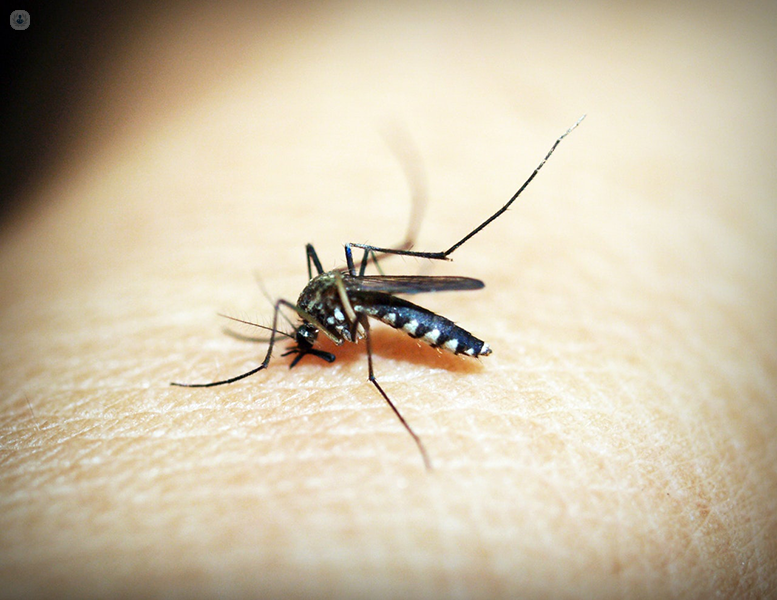

What are they?
Insects and bugs can bite or sting, which can sometimes cause a reaction or irritation on your skin.
Insect bites and stings happen more frequently during the summer, for several reasons:
- you’re wearing fewer clothes
- you spend more time outdoors
- at our latitude, many insects disappear during the winter and proliferate during the summer
By biting or stinging, insects inject toxic or irritating substances or allergens underneath your skin, causing pain and a swelling on the affected area, as well as an itching sensation and a mild allergic reaction.

Prognosis
Usually, insect bites and stings aren’t dangerous: they just cause some discomfort. However, in some cases - especially for allergies-prone individuals, insect bites and stings can cause more severe reactions.
Furthermore, in some areas of the world insects can be a carrier for certain diseases, such as malaria, yellow fever and dengue.
What are the symptoms?
- One or more red, swollen welts which can be very itchy
- The affected area becomes very red or very white and swollen
- An itching sensation and, in some cases, pain
- If you’ve been bitten in more delicate areas, such as the face, lips or genital area, you will also experience a burning sensation
If you’re very prone to allergies, you may also experience urticaria, angioedema and breathing problems due to a swelling of the throat which prevents the air from getting to your lungs; in the most severe cases, you may also get anaphylaxis - especially if you’re allergic to the poison injected by bees, wasps and hornets.
How are they diagnosed?
If you need to see your GP, he or she will help you identify which insect has bitten you. Bees and other Apidae stings can be easily identified by the stinger, which lodges in your skin.
What causes them?
There are two main reasons why an insect may bite or sting you:
- Feeding itself – in case you were bitten by a mosquito, midge, horsefly, flea, tick, lice or any other blood-feeding insect.
- Defending itself – in case you were stung by a bee, wasp, hornet, other Apidae insects or ant. In this case the sting is much more painful and it could cause an allergic reaction, anaphylaxis or even death.
How can they be prevented?
If you’re severely allergic to Apidae poison, you may be offered immunotherapy treatment against that substance. You closest relatives should do so as well.
How are they treated?
If you think that you might be allergic to the poison of the insect that stung you, you need immediate medical assistance.
Should there be no allergic reaction, the irritation will go away on its own in a few days.
It is advisable not to scratch the affected area, because that could facilitate bacterial penetration and lead to the formation of pus and further irritation.
If the area is very itchy, you can apply some dedicated ointments or an ice pack.
Which doctor should I talk to?
If you think you may be allergic to the poison of an insect, you should see an allergist. If you were bitten in a country were insects can transmit certain diseases, you should see a specialist in infectious diseases.
